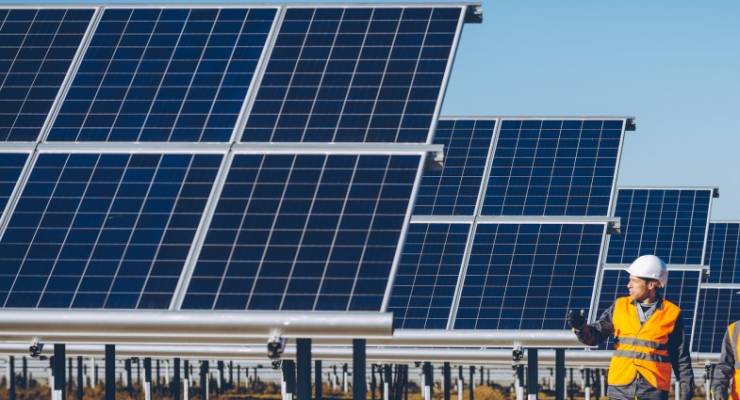
Yesterday, the chair of the Productivity Commission (PC), Michael Brennan, delivered a speech with the explosively populated title of Productivity Priorities Post-Pandemic, to one of the last bastions of neoliberalism in the country, the Committee for Economic Development of Australia.
As readers may recall, Brennan was a long-term Liberal staffer and would-be Liberal candidate in Victorian state politics (though Brennan’s former boss, Nick Minchin was unimpressed with our assessment of him), who was appointed to replace the excellent, and very independent, Peter Harris. While Brennan has kept closer to the traditional Gary Banks school of slash-burn-deregulate productivity thinking than Harris’ more imaginative and thoughtful approach, we should note Brennan’s speech actually refers to “a reasonably flexible labour market”, which we found fairly shocking.
After all, aren’t we constantly being told our industrial relations system is broken, inflexible, job-killing and productivity-impairing by the Coalition, employers, and media commentators? Perhaps Brennan had read, and properly digested, the PC report that the government commissioned when it first got into office, which concluded that, yes, the IR system was flexible and working pretty well.
But upon reading the rest of the speech — which was fine as far as it went, and features an important warning about the increasingly rapid drift back into protectionism in Australian politics — we thought something was missing. We couldn’t quite put our finger on it, but Brennan had failed to mention a key area of productivity that urgently needed reform even before the pandemic. What could it be? Then the penny dropped. And we rechecked. Nothing.
Brennan had somehow forgotten to mention energy. There wasn’t a single mention of energy, electricity, power, climate, emissions, coal, or renewables in his discussion of productivity priorities. But isn’t energy a productivity priority? Says who? Well, the Productivity Commission, for one.
In its 2017 report Shifting the Dial, commissioned by the government itself, the PC puts “fixing the energy mess” (it’s later described as “an appalling mess”) at the top of its list of “Improving the Efficiency of Markets”. After explaining why energy efficiency is crucial, has massive benefits to the rest of the economy, and needs “urgent” reform, the PC urged the government to “adopt a proper vehicle for reducing carbon emissions that puts a single effective price on carbon” because “investment in electricity generation is now being seriously damaged by absence of clarity over future emission reduction costs”.
Had Brennan somehow not read Shifting the Dial? We find that hard to believe, given that, even though it ostentatiously ignored the report when it came out, since then the government has occasionally promised to dust it off and revisit some of its recommendations.
Or could it be that Brennan didn’t mention one of the key and urgent reforms urged by the PC in its 2017 productivity review because it would draw attention to the Liberal Party’s complete inaction on energy and climate in recent years, and the inability of any of its leaders to resist donations from fossil fuel companies or overcome a denialist claque in its ranks that would rather burn the planet than admit they’re wrong?
Let alone that the best solution was a carbon price — which Brennan, as an economist, would know perfectly well.
Perhaps it was just an oversight, and we can look forward to Brennan upbraiding the government for its energy failures in forthcoming speeches.








Crikey is committed to hosting lively discussions. Help us keep the conversation useful, interesting and welcoming. We aim to publish comments quickly in the interest of promoting robust conversation, but we’re a small team and we deploy filters to protect against legal risk. Occasionally your comment may be held up while we review, but we’re working as fast as we can to keep the conversation rolling.
The Crikey comment section is members-only content. Please subscribe to leave a comment.
The Crikey comment section is members-only content. Please login to leave a comment.